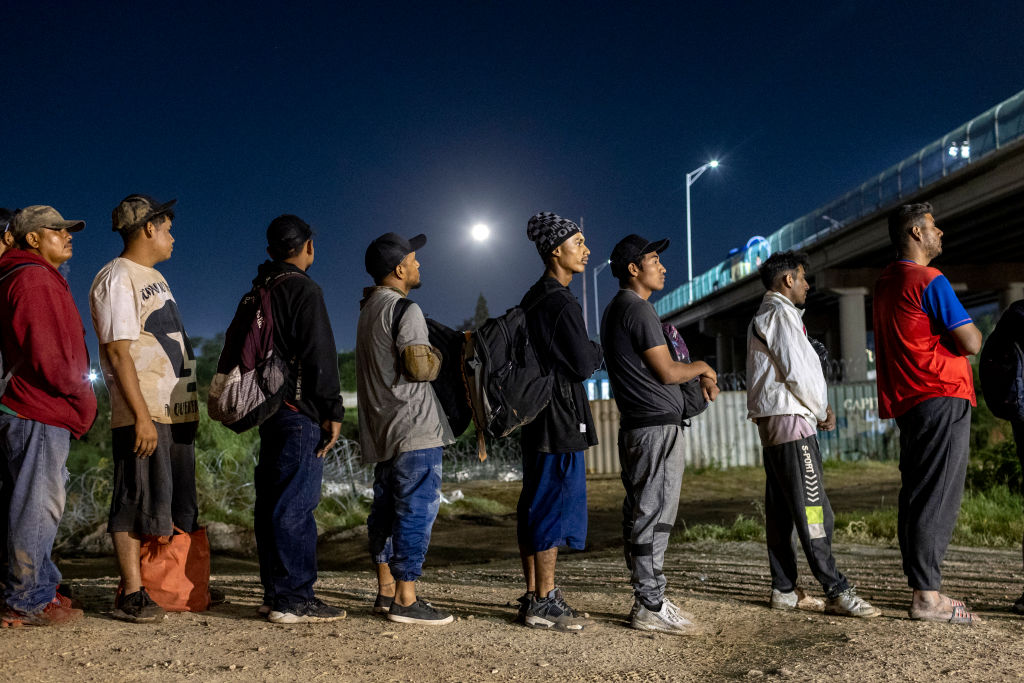The Biden administration has redesignated and extended Venezuela for Temporary Protected Status (TPS), Secretary of Homeland Security Alejandro Mayorkas announced last month. The move means almost 500,000 Venezuelan migrants who arrived in the United States on or before July 31 may be eligible to live and work in the U.S. without risking deportation, joining almost 250,000 migrants already benefiting from the status.
What is Temporary Protected Status?
TPS, first established in the Immigration Act of 1990, is an immigration designation for countries experiencing certain temporary and dangerous conditions, including ongoing armed conflict, an environmental disaster or epidemic, or other “extraordinary and temporary conditions,” according to the U.S. Citizenship and Immigration Services. More general adverse circumstances, such as poverty, are not enough to warrant a TPS designation, Elizabeth Jacobs, director of regulatory affairs and policy for the Center for Immigration Studies, tells The Dispatch.
TPS may be designated in periods up to 18 months, during which time eligible migrants may not be deported from the U.S. and are able to work legally here. The designation extends only to migrants who have been physically present in America before a certain date—a provision intended to prevent TPS from acting as a “pull factor” for illegal immigration, Jacobs says.
Sixteen countries are currently designated for TPS, including Venezuela. The Trump administration was blocked by the courts from revoking the status for six countries—El Salvador, Haiti, Nicaragua, Sudan, Honduras, and Nepal. Under President Joe Biden, the number of migrants eligible for the program has more than doubled, according to data from the Cato Institute.
Why Venezuela?
Before leaving office in 2021, former President Donald Trump allowed Venezuelan migrants to stay in the U.S. for 18 months under Deferred Enforced Departure, a temporary benefit similar to TPS in that it is granted by the president and has no statutory basis. Trump referred to the conditions in Venezuela under President Nicolas Maduro as “the worst humanitarian crisis in the Western Hemisphere in recent memory.”
The Biden administration first designated Venezuela for TPS less than two months later, citing “widespread hunger and malnutrition, a growing influence and presence of non-state armed groups, repression, and a crumbling infrastructure.” Then the Department of Homeland Security extended the designation for the country last month, in addition to redesignating TPS to include approximately 472,000 new Venezuelan migrants.
The number of Venezuelan refugees worldwide exceeds 7.7 million, and although more than 80 percent of them are located in Latin America and the Caribbean, migrants are increasingly coming to the U.S.: The U.S. Border Patrol recorded more than 22,000 nationwide encounters for Venezuelan migrants in August (the latest month for which data is available), up from approximately 11,500 in July.
There are “far fewer economic prospects” for migrants in South America than there used to be, Gil Guerra, an immigration policy analyst at the Niskanen Center, tells The Dispatch. “Colombia’s economy has retracted significantly, Ecuador has had a massive crime wave, Peru is in also currently a state of great political turmoil and economic retraction.”
The spike in migration has put pressure on cities like New York, which has been struggling to house waves of refugees who in many cases have been bused there by states like Texas and Arizona. New York Mayor Eric Adams estimated in August that the crisis would cost the city $12 billion over three years, declaring New York to be in a state of emergency. The administration is hoping that by giving migrants the ability to support themselves, TPS may lessen this burden, Guerra says. New York is currently required to provide shelter to people in need under its “Right to Shelter” law, but Adams has argued that the law doesn’t apply to migrants.
What comes next?
TPS is a temporary status and does not offer migrants a path to permanent residency, although beneficiaries of it can still apply for asylum or other immigration protections separately.
But TPS is rarely short-lived in practice: It can be extended indefinitely, and some countries—El Salvador, Honduras, Nicaragua, Somalia, and Sudan—have held the status for more than 20 years. “Most TPS beneficiaries can expect to remain in the United States long term, only because our government has been reluctant to, in recent decades, terminate status for nearly any country,” Jacobs says. The Obama administration extended and later terminated TPS for Guinea, Liberia, and Sierra Leone because of the Ebola outbreak. But prior to that, the most recent country to have the status discontinued was Burundi in 2009.
It’s also possible that redesignating the status to include more refugees could encourage illegal immigration, Jacobs says. “If our government keeps redesignating countries that have TPS in order to push that physical presence date forward repeatedly, you can have a reasonable expectation that if you come in illegally even after that date, at the next 18-month period, perhaps you will become eligible.”
The policy is a trade-off, according to Guerra. Giving Venezuelans work authorization helps take some of the weight off cities like New York and is good for local economies. But “it is a magnet at the same time,” he says, although he adds that many Venezuelan migrants are coming anyway: “U.S. immigration policy has been so erratic and so unreliable, that migrants will continue coming regardless of what policy is set out because they can think—not incorrectly—that the policy might change in a few months or a year.”








Please note that we at The Dispatch hold ourselves, our work, and our commenters to a higher standard than other places on the internet. We welcome comments that foster genuine debate or discussion—including comments critical of us or our work—but responses that include ad hominem attacks on fellow Dispatch members or are intended to stoke fear and anger may be moderated.